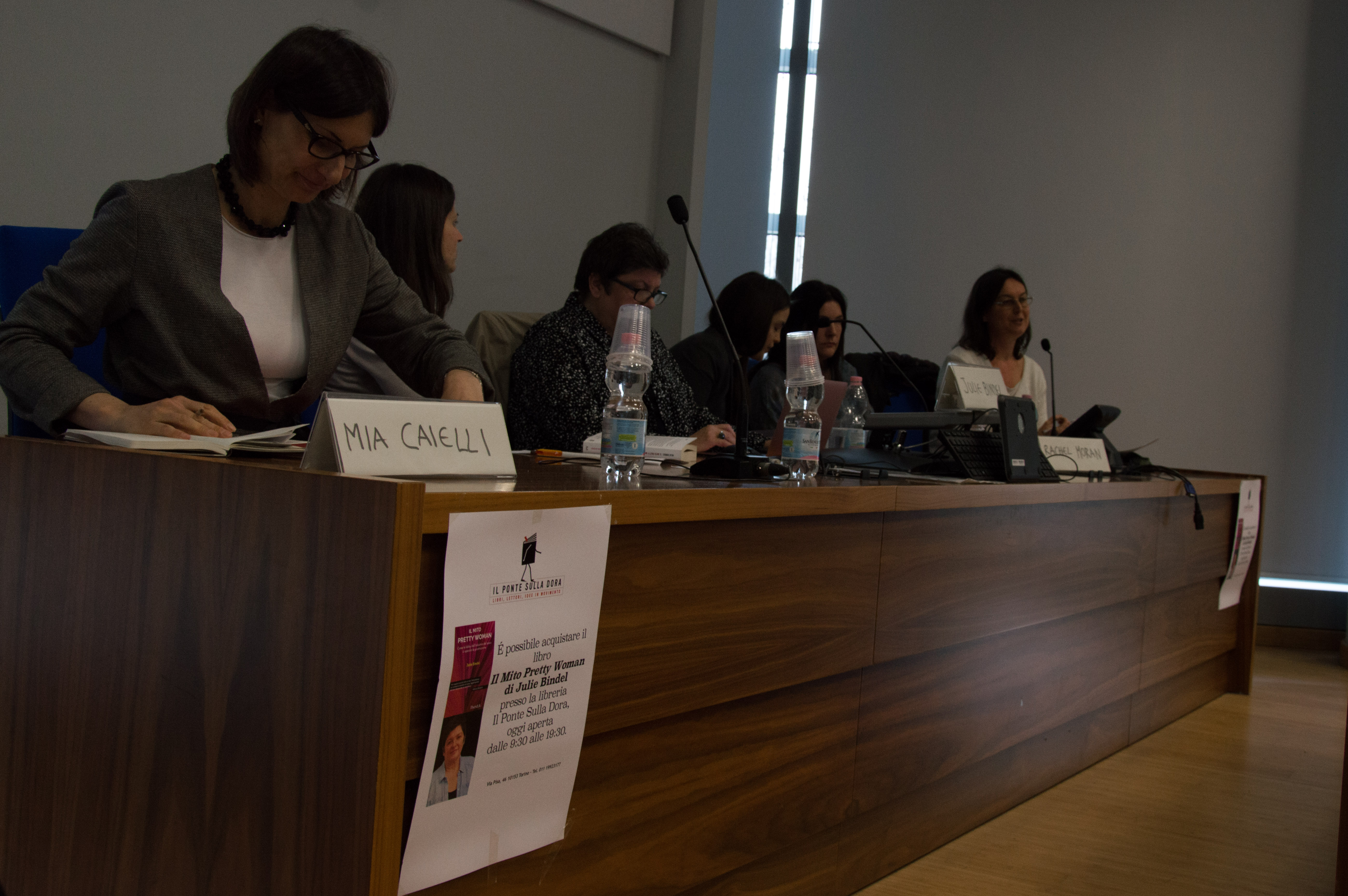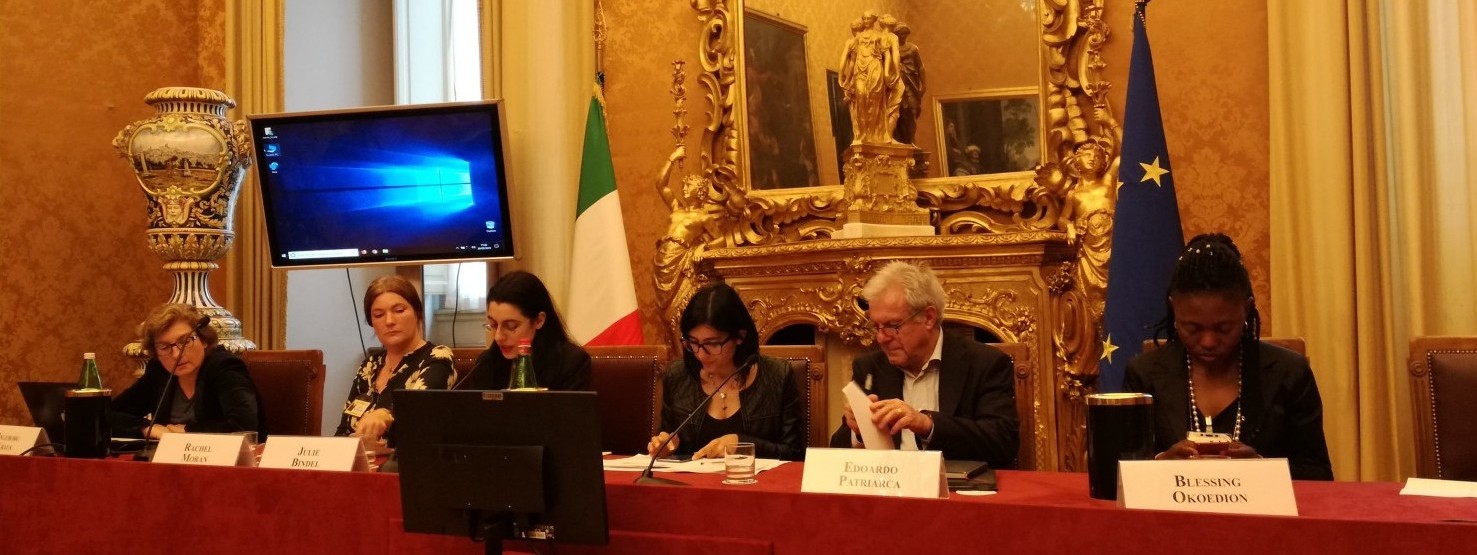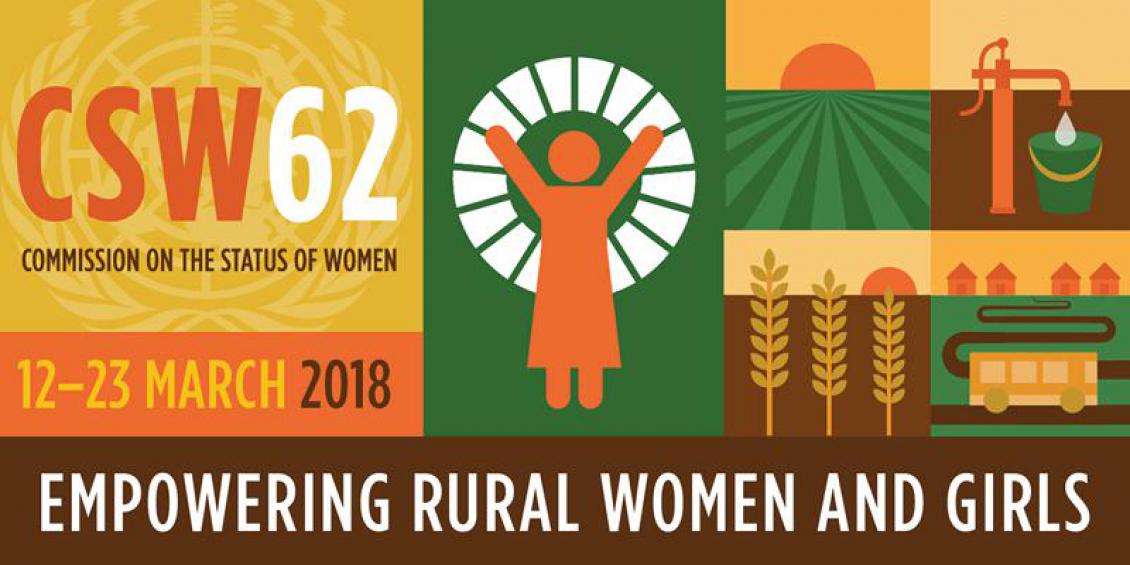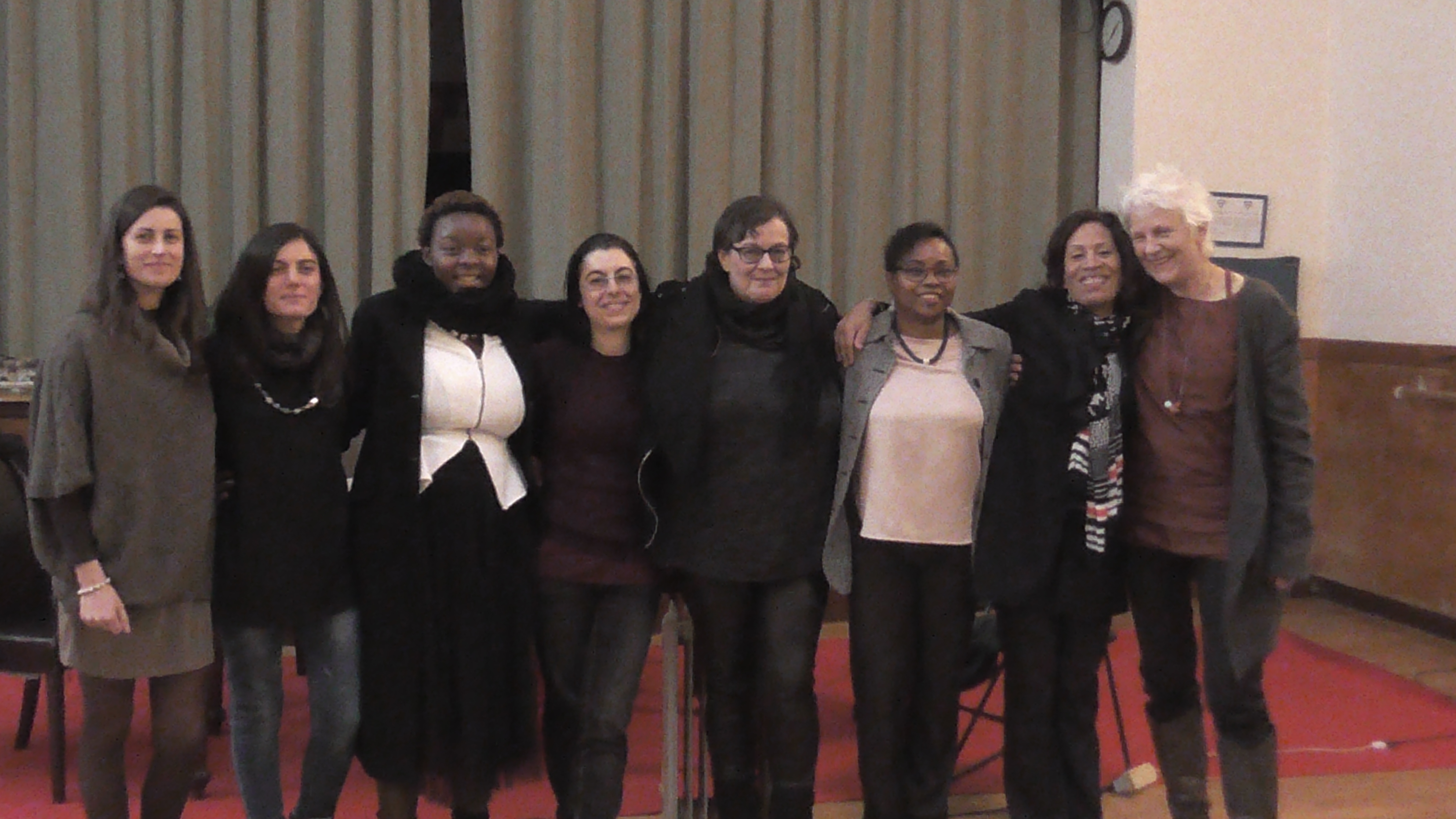IROKO Association, Resistenza Femminista, Unione Donne Italiane di Napoli , Salute Donna and Differenza Donna are holding a day of talks and reflection on the sex industry and human trafficking on 28th May 2018 from 15:00 to 19:00. It will be held in the “Aldo Moro” room in the Chamber of Deputies in Rome. Taking part in these talks will be the honourable Fabiana Dadone (from the 5 Star Movement) and Senator Edoardo Patriarca (from the Democratic Party).
Julie Bindel, writer and journalist (The Guardian, New Statesman, Sunday Telegraph, Standpoint), co-founder of Justice For Women and author of the book entitled The Pimping of Prostitution – an investigation into the global sex trade, drawing on interviews with 250 women from 40 countries – will be among international speakers at the event. Alongside her; Ingeborg Kraus, a German psychologist and trauma expert, who has held conferences around the world on the failure of the German Model (legalising prostitution), and the links between trauma and prostitution; Rachel Moran, an Irish survivor of prostitution, author of the book Paid For: My Journey Through Prostitution and co-founder of SPACE International, an association of women who have escaped from prostitution; Blessing Okoedion, activist, author of the book Il coraggio della libertà (The Courage of Freedom), who has lived through the experience of being trafficked to Italy; Giovani Conzo, the anti-mafia prosecutor, who has been involved in significant trials of trafficked Nigerian women in Italy.
Read More





